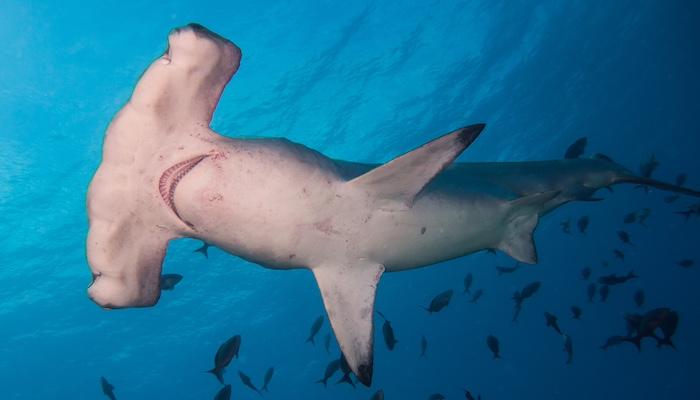Researchers at Macquarie University have found a significant portion of shark meat sold in Australian fish markets and takeaway shops is mislabelled, including several samples from threatened species.

Credit: WIKIMEDIA COMMONS Kris Mikael Krister CC BY 3.0
Researchers at Macquarie University have found a significant portion of shark meat sold in Australian fish markets and takeaway shops is mislabelled, including several samples from threatened species.
The findings, published in the journal Marine and Freshwater Research this month, highlight the ineffectiveness of seafood labelling and the grave implications for both consumer choice and shark conservation.
Researchers collected 91 samples of shark meat from 28 retailers across six Australian states and territories and used DNA barcoding to identify the species of each sample and compared it to the label applied by the retailer.
They found 70 per cent of the samples were mislabelled, either because the species did not match the label or the label did not comply with the Australian Fish Names Standard (AFNS).
Mislabelling was particularly high for samples labelled as ‘flake’, which the AFNS restricts to fish from just two sustainably caught shark species: the gummy shark and New Zealand rig shark.
They found 88 percent of samples labelled ‘flake’ were not from either of these species and nine samples sold as ‘flake’ came from species listed as threatened in Australia.
Mislabelling was markedly higher in takeaway shops compared to fish markets and wholesalers.
With many shark populations facing unprecedented declines worldwide, the research underscores the urgent need for improved labelling standards and enforcement, says co-author and research supervisor Ms Armansin.
“Ambiguous trade labels like ‘flake’ are a real hindrance to sustainable consumption,” says Ms Armansin.
Professor Stow heads the conservation genetics laboratory at Macquarie University, and says rapid DNA testing to determine what species have been caught or traded could enable large-scale monitoring of seafood supply chains.
Ms Parker Kielniacz says the study shows the importance of giving consumers access to accurate information to build a more ethical and sustainable shark meat industry.
DOI
10.1071/MF23198
Method of Research
Experimental study
Subject of Research
Animals
Article Title
High levels of mislabelling of shark flesh in Australian fish markets and seafood shops
Article Publication Date
8-May-2024
COI Statement
The authors declare that they have no known conflicts of interest associated with this publication and have received no financial support or personal benefits that could have influenced the research presented in this article.




